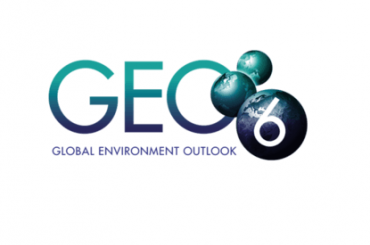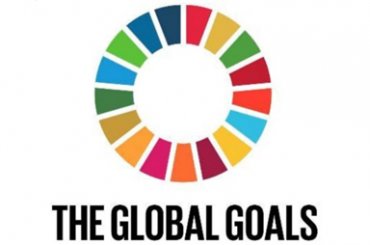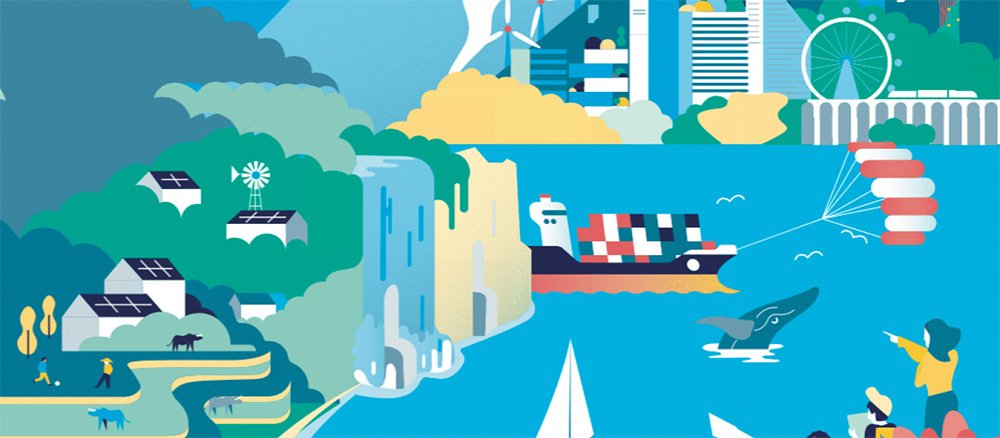UN report: environmental targets not achievable without drastic change
The world is not on track to achieve internationally agreed environmental targets, such as those outlined in the Sustainable Development Goals (SDGs) and the Paris Agreement. To get on track, drastic change is required: more sustainable food systems, improved agricultural yields, renewable energy and a circular economy. Integrated policy approaches are crucial. These are some of the main messages in the sixth Global Environment Outlook (GEO-6) of UN Environment. Together with UvA and PBL Utrecht University contributed to the report.
The Global Environment Outlook (GEO) is a periodic flagship report of UN Environment meant at informing environmental decision-making by governments and other stakeholders. The latest GEO-6 provides a comprehensive evidence-based assessment of the state of the environment, the effectiveness of current policy responses and possible pathways to achieve internationally agreed environmental goals. The report is written by 250 scientists from more than 70 countries.
Current trends show further environmental degradation
Despite environmental policy efforts, the overall condition of the global environment continues to deteriorate. This ultimately also has adverse effects on human health, well-being and economic progress. Environmental policy efforts are being hindered by a variety of factors, including lack of implementation and lack of integration in sectoral policies, such as in the field of agriculture, energy and mobility.
World not on track to achieve internationally agreed environmental targets
Along with other colleagues Prof Detlef van Vuuren of Utrecht University and PBL assessed a large number of scenario studies. Based on this the researchers conclude that indicators related to human development, including hunger and access to clean water and energy, are likely to improve, but not sufficiently enough to meet related targets – based on the UN Sustainable Development Goals. At the same time, trends in environmental degradation, including climate change, biodiversity loss, water scarcity, excess nutrient run-off, land degradation and ocean acidification, are expected to continue worsening at a rapid rate.
Wide-ranging innovations in production and consumption
Alternative scenarios that aim to achieve the agreed environmental targets were assessed as well. The analysis concludes that this would require wide-ranging innovations in production and consumption that go beyond those achieved in the past and cannot be realised by environmental policies alone. This would include the adoption of a low-meat diet and reduced food waste, more sustainable and efficient food systems, further improvements in agricultural yields, huge increases in renewable energy and energy efficiency, and a shift to a circular economy.
Integrative policy approaches
There are many synergies, but also conflicts between achieving the different targets. For example, land-based climate change mitigation and agricultural intensification are key measures for achieving climate and food targets, respectively, but could have significant detrimental effects on other environmental targets if not managed carefully. This calls for integrative policy approaches with environmental considerations integrated in other policies, including in social and economic policies.
Netherlands key contributor to GEO-6
GEO-6 was compiled on the basis of scientific input from many researchers and with support from governmental representatives and scientific advisors. The Netherlands played a key role in the assessment. Professor Joyeeta Gupta from the University of Amsterdam (UvA) was one of the two co-chairs of the assessment and led the overall report, while Paul Lucas of PBL Netherlands Environmental Assessment Agency and Prof Detlef van Vuuren (PBL and Utrecht University) coordinated the scenario analysis in the report. Important contributions were made by Rak Kim, Joost Vervoort and masters students Mandy van den Ende and Rohan Bhargava..en masterstudenten Mandy van den Ende en Rohan Bhargava Vervoort contributed to a chapter that connects the global scenarios to local perspectives and innovations. Rak Kim contributed to the policies chapter.
Read more

Utrecht University researchers and students key contributors to UN Global Environment Outlook process
Utrechtse onderzoekers en studenten betrokken bij de zesde UN Global Environment Outlook (GEO-6).

Global Sustainability Governance and Integration
The Copernicus Institute contributes to Global Sustainability Governance and Integration by monitoring the overall governance problems posed by the goals.


